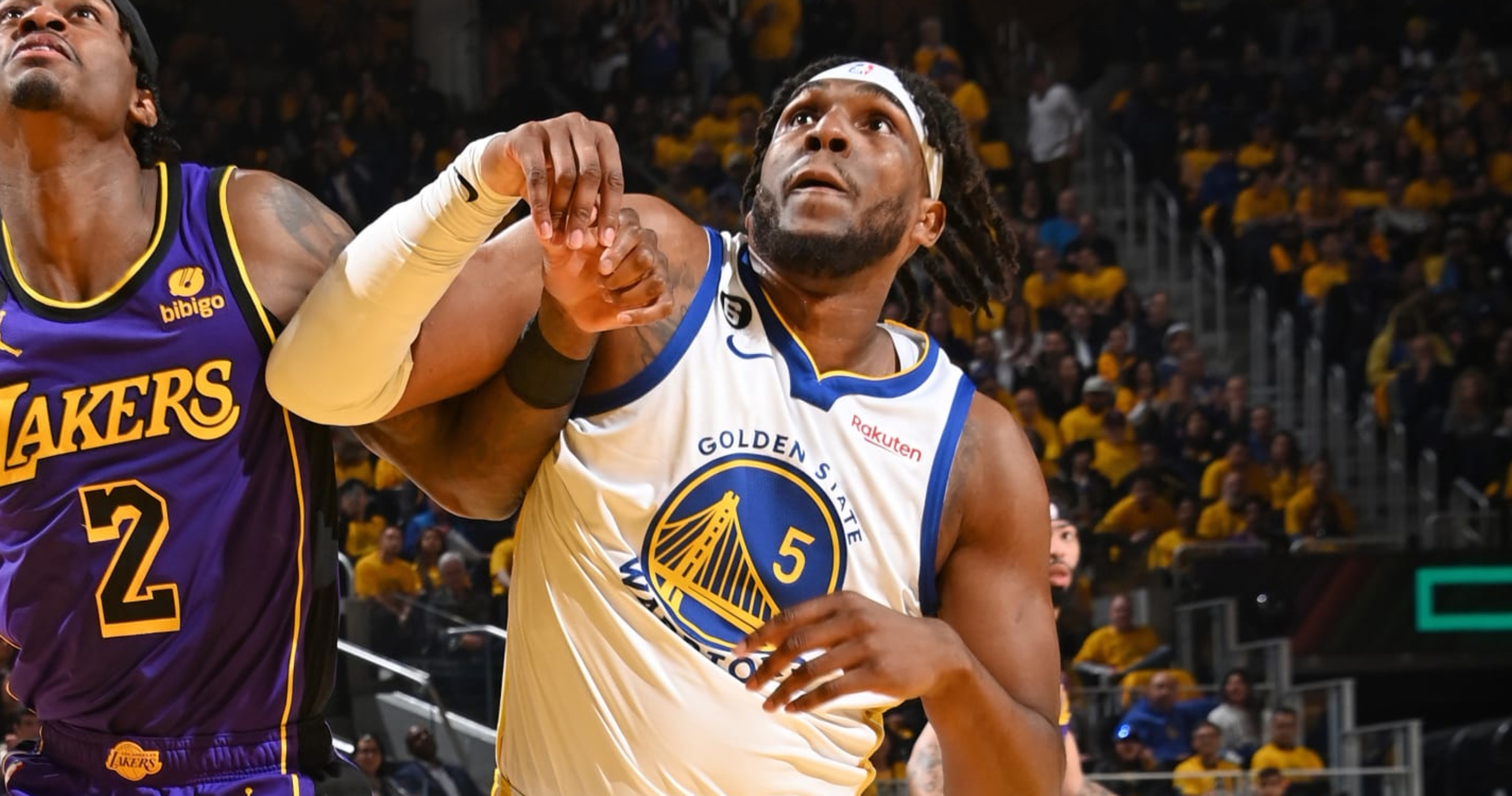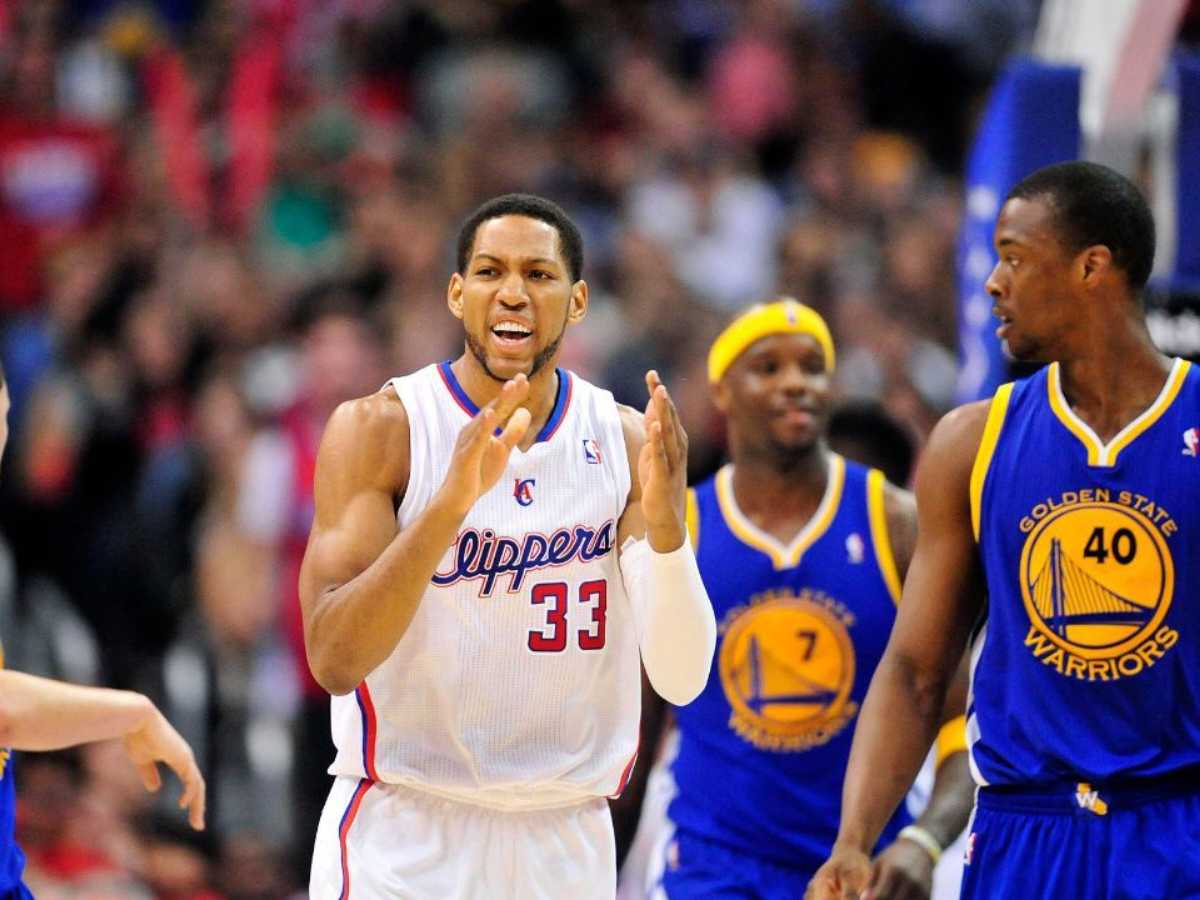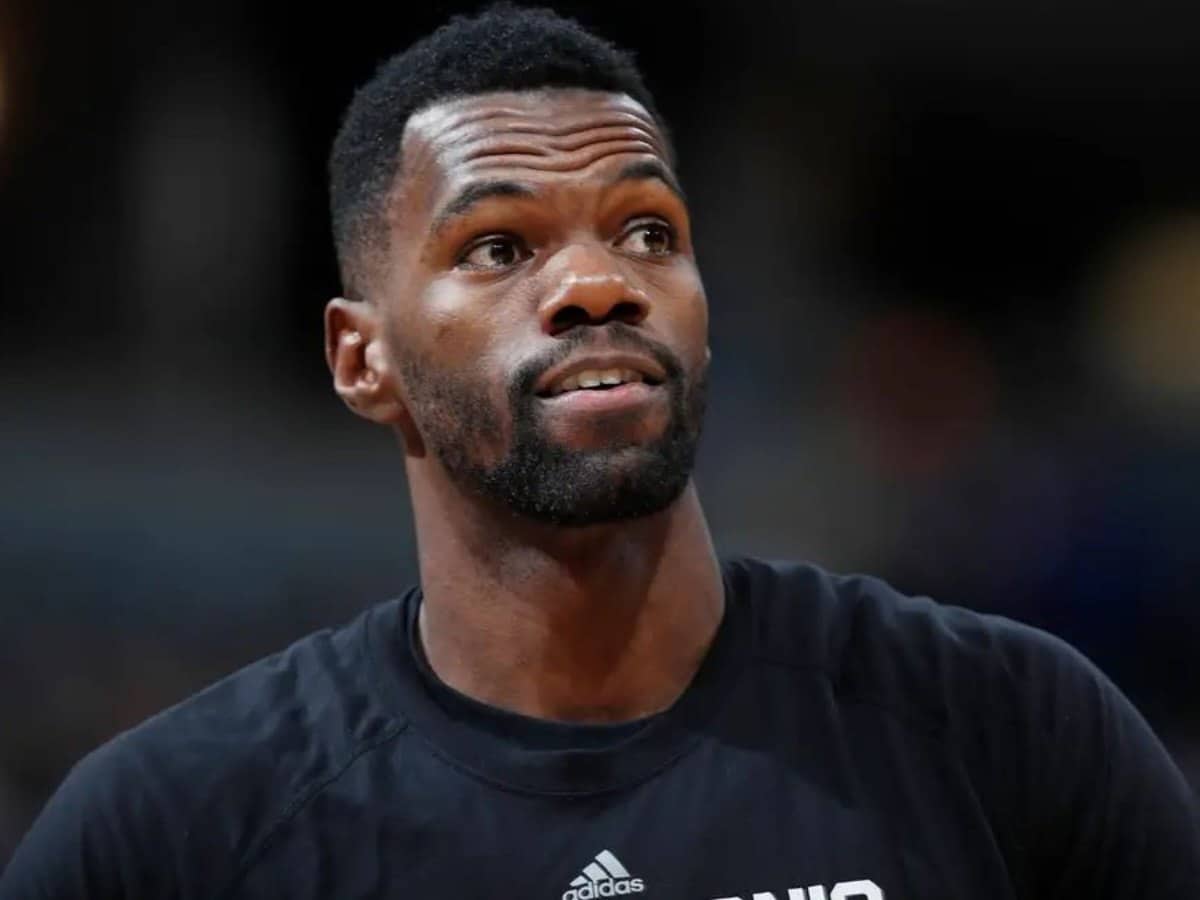Jehovah's Witness NBA Players: Faith On The Hardwood
Detail Author:
- Name : Dr. Carolyne Mertz
- Username : beth45
- Email : erwin74@hotmail.com
- Birthdate : 1974-02-11
- Address : 17148 Heathcote Inlet Suite 976 West Gwenborough, DC 80739
- Phone : +1.714.431.2179
- Company : Marks-Jacobs
- Job : Computer Science Teacher
- Bio : Exercitationem sequi non autem omnis. Doloremque minima aut id perferendis ut in. Debitis voluptatem ut omnis suscipit.
Socials
facebook:
- url : https://facebook.com/lizeth2084
- username : lizeth2084
- bio : Qui velit facere nobis illum ut et velit. Saepe perspiciatis et id.
- followers : 6420
- following : 1404
tiktok:
- url : https://tiktok.com/@lizeth_kling
- username : lizeth_kling
- bio : Nulla qui nemo ex recusandae. Inventore minima deleniti voluptatibus fugiat.
- followers : 3894
- following : 432
linkedin:
- url : https://linkedin.com/in/lizeth_real
- username : lizeth_real
- bio : Error recusandae incidunt minus aut.
- followers : 162
- following : 1952
twitter:
- url : https://twitter.com/lizethkling
- username : lizethkling
- bio : Sapiente quibusdam corporis qui repudiandae. Id optio qui veniam quos eaque deleniti quia culpa.
- followers : 6826
- following : 1298
instagram:
- url : https://instagram.com/lizeth9129
- username : lizeth9129
- bio : Repudiandae et consequatur aut. Rerum quidem quis iste exercitationem possimus.
- followers : 2369
- following : 2657
Have you ever wondered about the personal convictions that shape the lives of professional athletes, especially when those beliefs are quite distinct? It's a fascinating thing, really, to consider how deep-seated faith can influence someone's path, particularly in a high-pressure, very public arena like the National Basketball Association. We often see players perform amazing feats on the court, but what about the parts of their lives that happen away from the bright lights? This article looks at what it means for someone in the NBA to hold the beliefs of a Jehovah's Witness, exploring the unique situations that might come up.
There's a lot of talk, you know, about what makes athletes tick, what drives them. For some, it's a desire for fame, for others, it's about the pure love of the game, or maybe even family support. But for a few, their spiritual convictions play a truly central part in their day-to-day existence, and that includes their work. It's interesting to think about the personal choices these individuals make, and how those choices fit into the demanding schedule and public eye of professional sports. This really brings a different kind of perspective to the game, doesn't it?
When we talk about faith and professional sports, the conversation can get quite interesting, actually. People often want to know how athletes balance their personal lives with their careers. For those who are Jehovah's Witnesses, there are specific principles that guide their lives, and these principles can sometimes lead to different approaches to certain situations than what might be typical in the sports world. We're going to explore what this looks like, what some of the common questions are, and how some players have navigated their careers while holding onto their deeply held beliefs. It's a story of conviction, in a way, and commitment.
Table of Contents
- Introduction
- What Being a Jehovah's Witness Means for an NBA Player
- Challenges and Considerations for Jehovah's Witness NBA Players
- A Look at a Notable Player: Danny Granger
- The Impact of Faith on a Player's Career Path
- Common Questions About Jehovah's Witness NBA Players
- A Final Reflection
What Being a Jehovah's Witness Means for an NBA Player
Being a Jehovah's Witness involves a way of life guided by Bible principles. For someone in the NBA, this means their faith influences many parts of their daily existence, from their personal conduct to their approach to work. It's not just a Sunday thing; it's a full-time commitment, you know? They believe in living by a set of moral standards that come from their understanding of scripture. This can include things like how they treat others, what they say, and even what they choose to watch or listen to. It's a very personal path, really, and it shapes their entire outlook.
One key aspect of their faith is neutrality. This means they generally do not get involved in political matters or nationalistic celebrations. So, for a basketball player, this might mean not participating in national anthem ceremonies or other patriotic displays that are common in sports. It's a deeply held conviction for them, and it comes from their belief that their loyalty belongs to God's Kingdom, not to any earthly government. This can sometimes be misunderstood, of course, by people who don't know much about their beliefs, but it's a sincere part of their spiritual identity.
Another principle that often comes up is their view on blood transfusions. Jehovah's Witnesses refuse blood transfusions, based on their interpretation of certain Bible verses. While this might not seem directly related to playing basketball, it's a medical decision that could become a serious consideration if an athlete were to suffer a major injury. It's a very personal and often challenging stand, but it's one they take very seriously. So, you see, their faith has practical implications for their lives, even in the very demanding world of professional sports, apparently.
Challenges and Considerations for Jehovah's Witness NBA Players
Playing in the NBA brings a lot of challenges for anyone, but for a Jehovah's Witness, there are some extra things to think about. For instance, the NBA schedule is very demanding, with games often happening on weekends and holidays. Jehovah's Witnesses have regular meetings for worship and often spend time in a public ministry, sharing their beliefs with others. Balancing these spiritual activities with travel, practices, and games can be a bit of a challenge. It requires careful planning and a lot of commitment, you know, to make sure both parts of their lives get the attention they need.
Then there's the whole issue of public image and media attention. NBA players are constantly in the spotlight, and their actions are often scrutinized. For a Jehovah's Witness, maintaining a reputation that aligns with their faith is very important. This means being mindful of their speech, their associations, and how they conduct themselves, both on and off the court. It's a lot of pressure, really, to live up to those standards when everyone is watching, and that's something they carry with them every day.
Also, things like team celebrations, endorsements, or even certain types of music played in arenas might present dilemmas for a player whose faith guides their choices. They might choose not to participate in certain activities that conflict with their conscience. This isn't about being un-supportive of their team, but rather about staying true to their personal convictions. It's a fine line to walk, in a way, trying to be a team player while also upholding deeply held beliefs. It requires a lot of personal strength, apparently, to navigate those situations with grace.
A Look at a Notable Player: Danny Granger
When people talk about Jehovah's Witness NBA players, one name that often comes up is Danny Granger. He played for several teams during his career, most notably with the Indiana Pacers. Granger has spoken publicly about his faith and how it has influenced his life and career. His story gives us a good example of how someone can balance the demands of professional basketball with personal spiritual commitments. It's a pretty interesting case, actually, and shows how diverse the league is.
Granger's journey in the NBA was marked by both success and some setbacks, including injuries. Throughout it all, his faith remained a very central part of his identity. He's been open about how his beliefs helped him cope with challenges and maintain perspective. This isn't just about playing a game; it's about living a life that reflects one's deepest values, and he seemed to do that very consistently. It’s a testament to his personal strength, you know, and his convictions.
His experience offers a window into the lives of athletes who prioritize their spiritual walk alongside their professional pursuits. It shows that it is possible to achieve high levels of success in sports while also holding firm to personal convictions. It takes a unique kind of dedication, really, to manage both worlds so effectively. And so, Granger's story, in some respects, provides a compelling narrative for those interested in the intersection of faith and elite sports.
Biography and Personal Details: Danny Granger
| Full Name | Danny Granger Jr. |
| Born | April 20, 1983 |
| Birthplace | New Orleans, Louisiana, USA |
| Nationality | American |
| Height | 6 ft 9 in (2.06 m) |
| Weight | 228 lb (103 kg) |
| Position | Small Forward |
| NBA Draft | 2005 / Round: 1 / Pick: 17 (Indiana Pacers) |
| College | Bradley, New Mexico |
| NBA Career | 2005–2015 |
| Notable Teams | Indiana Pacers, Los Angeles Clippers, Miami Heat |
| Faith | Jehovah's Witness |
The Impact of Faith on a Player's Career Path
The faith of a Jehovah's Witness can have a pretty significant impact on a player's career path, actually. For example, some players might choose not to participate in certain endorsement deals if the products or companies conflict with their moral standards. This could mean passing up a lot of money, but for them, their principles are more valuable. It's a choice that reflects a deep personal conviction, you know, and a prioritization of spiritual values over material gain.
Team dynamics can also be affected. While most teams are understanding of individual beliefs, there might be times when a player's convictions lead to different choices than their teammates. For instance, if a team celebrates a championship with champagne, a Jehovah's Witness player might politely decline to participate in that specific part of the celebration. It's not about being aloof, but rather about sticking to their personal code. This requires clear communication and mutual respect within the team, obviously, to make sure everyone understands.
Furthermore, the support system a player has outside of basketball becomes even more important. Their family and fellow worshippers provide a network that helps them stay grounded and focused on their spiritual goals. This support can be very helpful in navigating the pressures and temptations that come with being a professional athlete. It's a reminder that these players are not just athletes; they are individuals with rich personal lives and deeply held beliefs that guide them, you know, every step of the way.
Common Questions About Jehovah's Witness NBA Players
Do Jehovah's Witness NBA players refuse to stand for the national anthem?
Generally speaking, yes, a Jehovah's Witness NBA player would typically choose not to stand for the national anthem. This decision comes from their belief in political neutrality. They see standing for the anthem as an act of allegiance to a nation, and their loyalty, they feel, belongs solely to God's Kingdom. It's not a sign of disrespect towards any country or its people, but rather a deeply held religious conviction. They often remain seated or stand quietly out of respect for others, but they do not participate in the pledge itself. This is a pretty consistent practice among them, you know, based on their beliefs.
How do Jehovah's Witness players handle holidays like Christmas during the NBA season?
Jehovah's Witnesses do not celebrate traditional holidays like Christmas or Easter, as they believe these holidays have pagan origins or are not supported by the Bible. For an NBA player, this means they wouldn't participate in team Christmas parties or holiday-themed games in the same way others might. They would still play games scheduled on those days, as it's part of their job, but their personal celebrations and family activities would not revolve around these dates. It's just a different approach to holidays, really, based on their faith. They focus on other times of the year for family gatherings and personal enjoyment, apparently.
Are there any restrictions on what Jehovah's Witness NBA players can wear or say?
While there aren't specific "uniforms" or strict verbal codes mandated by their faith for everyday life, Jehovah's Witnesses are encouraged to dress modestly and speak in a way that reflects their Christian values. For an NBA player, this might mean being mindful of the messages on their clothing, avoiding profanity, and generally presenting themselves in a way that brings credit to their faith. They are taught to be respectful and kind in their speech. It's more about personal conscience and living by principles rather than rigid rules, you know, so it's a bit subjective for each person. They aim for a conduct that is peaceful and upbuilding, and that definitely extends to their public persona.
A Final Reflection
Thinking about Jehovah's Witness NBA players really opens up a conversation about faith, personal conviction, and the world of professional sports. It shows that even in the most competitive environments, individuals can hold onto what they believe in. These players, like anyone else, face challenges, but their faith provides a framework for how they approach life, both on and off the court. It's a powerful reminder that there's more to an athlete than just their statistics or their highlight reels; there's a whole person with a unique story and a deep set of values.
It's pretty clear that understanding different perspectives helps us appreciate the richness of human experience. Just like when you try to translate text from one language to another, you need clarity to get the real meaning across, and that's what we aim for when we talk about people's beliefs. You can learn more about personal conviction and how it shapes lives on our site. This exploration of faith in sports, you know, offers a glimpse into the personal journeys of these athletes. It also makes you think about how different beliefs can coexist in shared spaces, like a basketball team or a league. Find out more about how personal values influence careers by visiting this page. This topic, actually, is quite relevant today, as people become more interested in the whole person behind the public figure.
The commitment these players show, both to their sport and to their spiritual path, is something many find inspiring. It really highlights the idea that success can come in many forms, and it doesn't always look the way we expect. So, the next time you watch a game, maybe you'll think a little about the varied backgrounds and personal journeys that each player brings to the court. It adds a whole new layer of depth to the experience, doesn't it?
For more general information on Jehovah's Witnesses, you might consider looking at the official website of Jehovah's Witnesses, jw.org. It's a good place to get information directly from them, you know, about their beliefs and practices.


